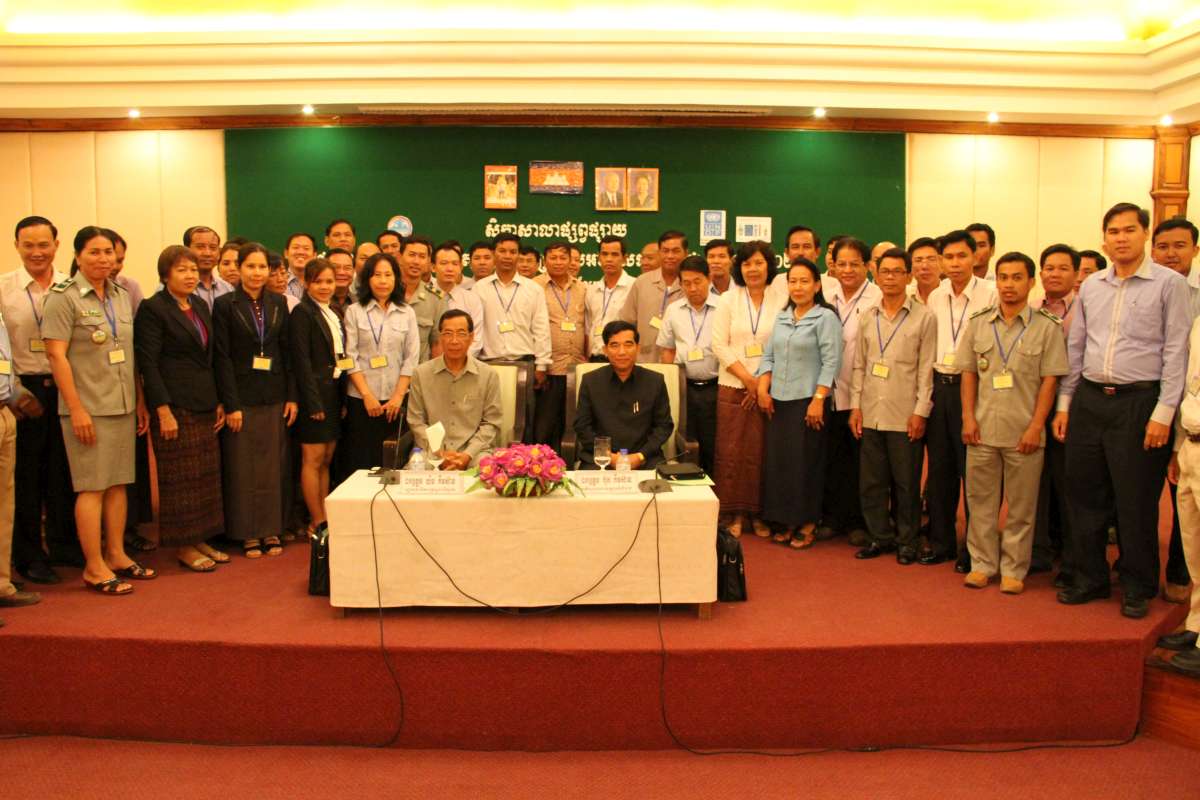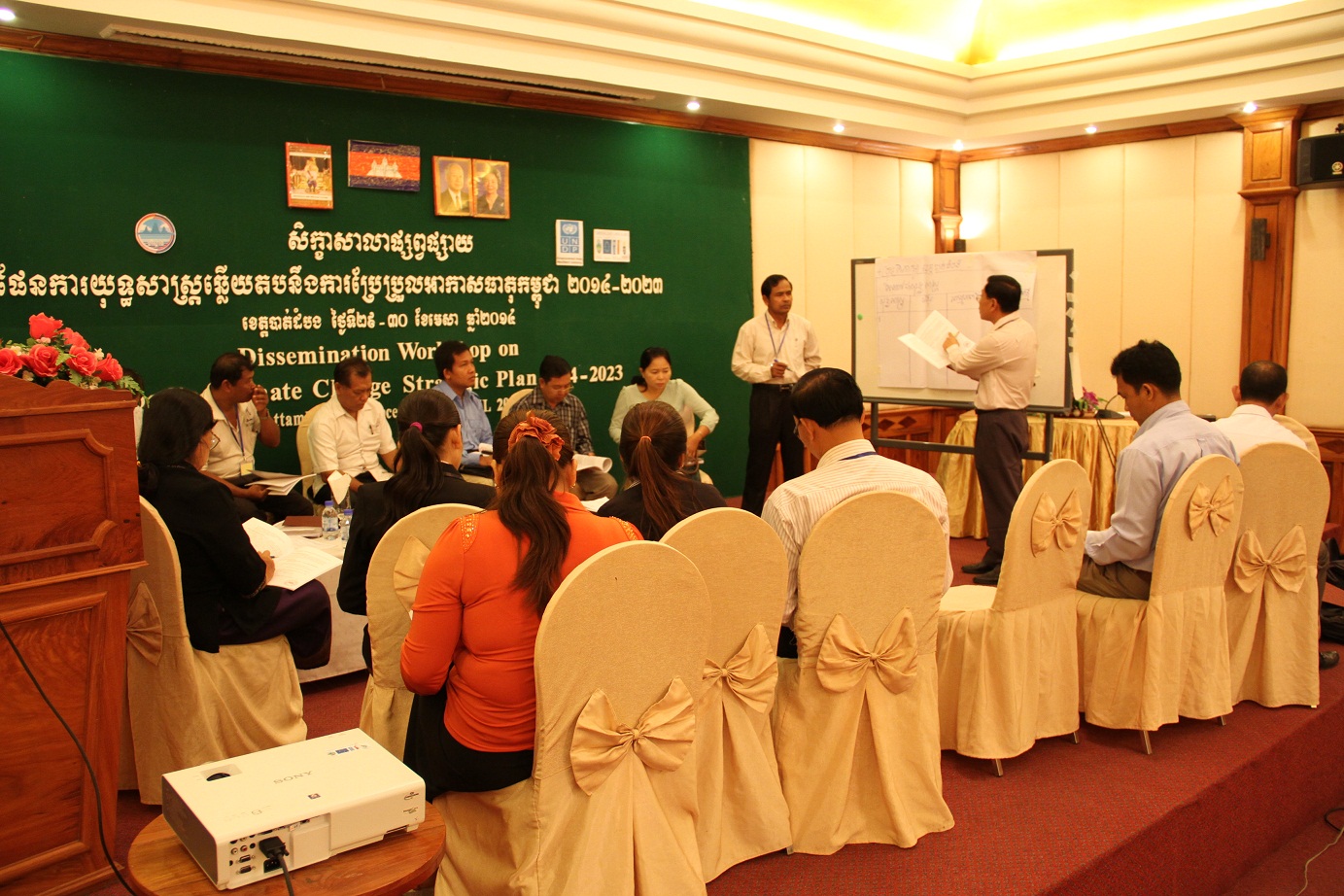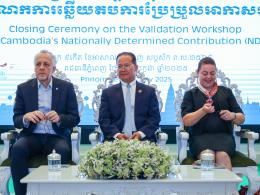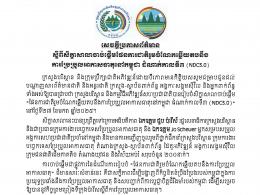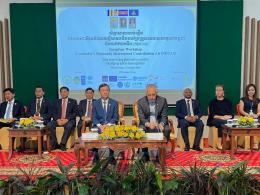Bat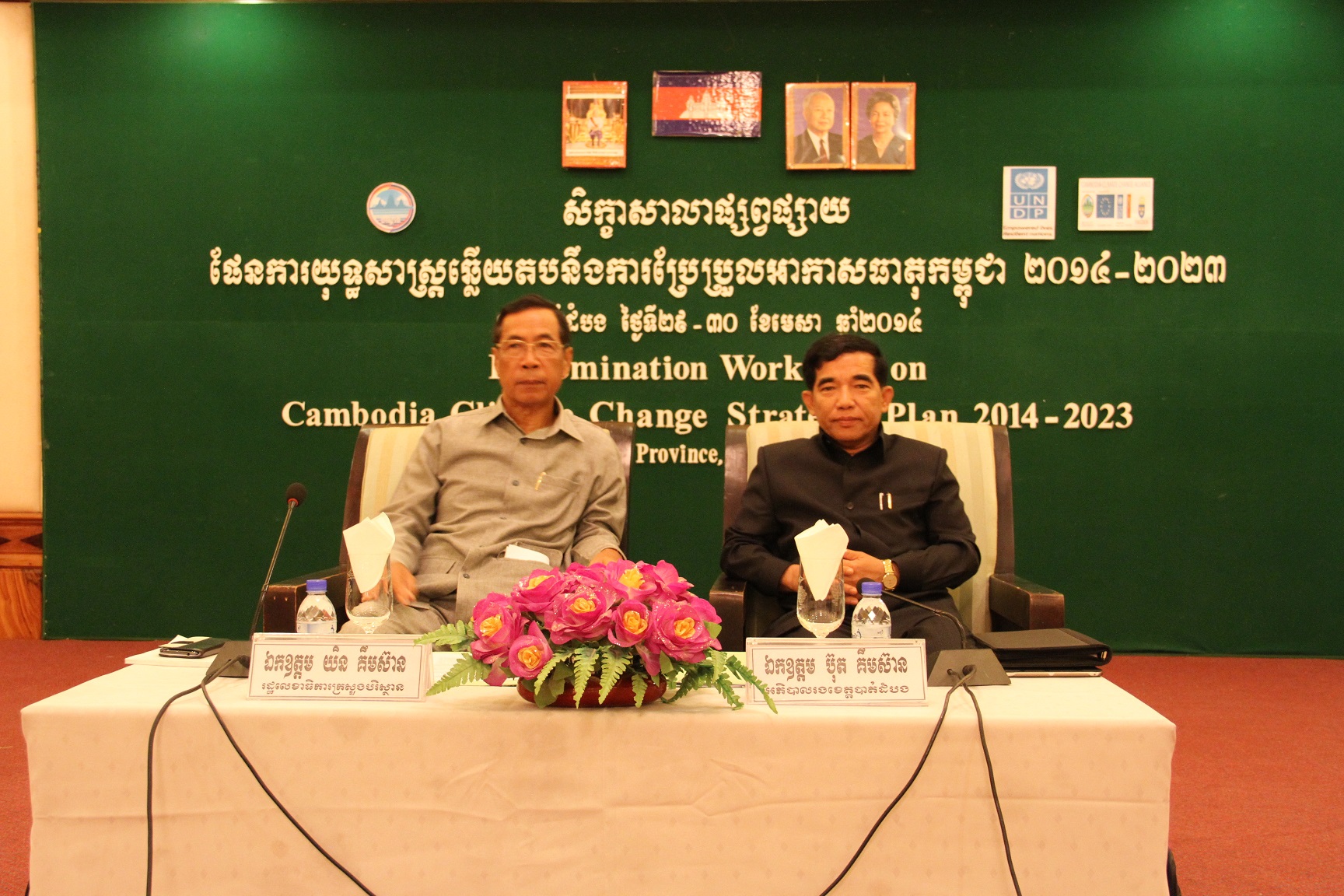
H.E. Buth Kimsean, Vice Provincial Governor of Battambang Province, noted that Battambang as well as other provinces is vulnerable to climate change. frequent and severe floods and droughts pose serious impacts on water supply, infrastructure, agriculture, livestock, fisheries. Recently 2013 there were a big flood in Banteay Meanchey and Battambong province “Therefore, CCCSP 2014-2023 should serve as the basis for mainstreaming climate change into provincial development plans in alignment with the national development priorities”, he added.
In his opening remarks, H.E. Yin Kimsean, Secretary of State of the Ministry of Environment, pointed out that CCCSP 2014-2023 is the first-ever comprehensive national strategic plan to guide responses to climate change in Cambodia as well as to contribute to the global effort to reduce greenhouse gas emission. He further noted that, launched in November 2013 by Samdech Prime Minister Hun Sen, the document has been designed in strict adherence to the sustainable development principles to ensure strategic cohesion to address a wide range of climate change issues via both adaptation and mitigation measures that support the achievement of the Rectangular Strategy objectives and the Cambodian Millennium Development Goals. He finally expressed his hope that CCCSP will serve as the basis for a more coordinated response to climate change at both the national and sub-national levels.
The event was divided into 2 main sessions. Session 1 focused on presentation general concept of Climate Change include cause, negative impact and mitigation action and CCCSP formulation process, its 3 objectives and 8 strategic objectives; cross cutting issues; and experience in climate change mainstreaming at the sub-national level. In session 2, the representatives of provincial technical departments are divided into 5 discussion groups to identify the CCCSP strategies that directly address the needs of each province in responding to climate change and how these strategies can be used in their respective planning processes.
At the national level, the remaining priority activities to support the full operationalization of the CCCSP include completion of the Sectoral Action Plans, design of a National Climate Change Financing Framework to ensure adequate resource mobilization, and finalization of a Monitoring and Evaluation Framework to keep track of the country efforts to address climate change at various levels. The workshop is significantly valued by all participants due to its importance to support responses to climate change impacts at the sub-national level, particularly in the provinces around Tonle Sap lack.
